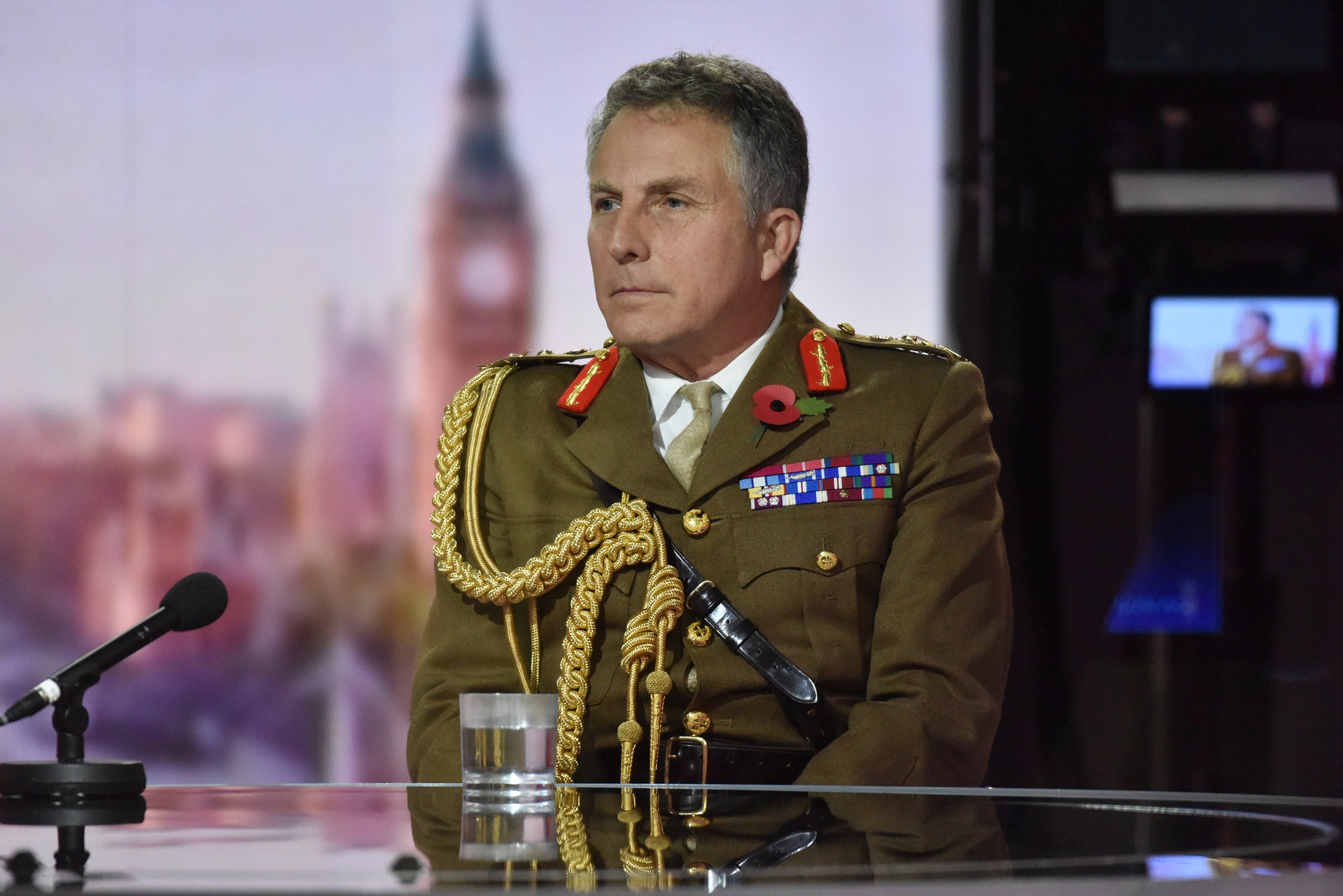Coronavirus: Military chief warns of Third World War risk as pandemic brings ‘uncertain and anxious’ times
General Sir Nick Carter speaks of danger of forgetting past sacrifices in Remembrance Sunday interview

The head of Britain’s military has warned that the world is living through a “very uncertain and anxious” period as a result of the coronavirus pandemic, with a risk of regional tensions escalating into a Third World War.
General Sir Nick Carter, the chief of defence staff, said the UK must be on guard against the danger that economic crisis, global competition and regional conflicts could flare up into widescale military confrontation.
In an interview to mark Remembrance Sunday, he said that the “rhythm” of history showed that localised tensions can easily ratchet up and drag nations into war.
Asked if the economic fallout of Covid-19 could lead to security problems or even military conflict, Gen Carter told the Sky News programme Sophy Ridge on Sunday: “Yes, I think we are living at a moment in time where the world is a very uncertain and anxious place.
“And of course, the dynamic of global competition is a feature of our lives as well.
“I think the real risk we have with quite a lot of the regional conflicts that are going on at the moment, is you could see escalation lead to miscalculation and that’s a thing I think we have to guard against.”
Gen Carter said that history has shown that, often because protagonists are not aware of the potential consequences of their actions, regional tension can lead to an escalation where “more people get involved, more weaponry gets involved and before you can contain it, it leads to the sides ending up in a full-blown war”.
He warned: “If that happens, as we saw in the last century, we have to remember that history might not repeat itself, but it has a rhythm.
“If you look back at the last century, before both world wars, I think it was unarguable that there was escalation which led to the miscalculation which ultimately led to war at a scale we would hopefully never see again.”
Asked directly if there was a real threat of another world war, Gen Carter said: “I’m saying it’s a risk and we need to be conscious of those risks.
“That’s why remembrance matters, because if you look back at history, hopefully you learn from their experience and you make sure that you’re very cautious about how you manage the sorts of regional conflicts that we see playing out in the world today.”
Gen Carter did not identify specific regional conflicts that could lead to a wider war. However, recent years have seen growing tensions in the South China Sea, with both Beijing and Washington stepping up their military presence, while Russia remains engaged in a struggle for influence over Ukraine, and its neighbour Belarus is in an uncertain state following disputed elections. As ever, the Middle East remains a potential powder keg, with Syria shattered by its brutal civil war and rivals Iran and Saudi Arabia vying for influence in the region.
The coronavirus pandemic has fuelled uncertainty, with recession in the worst-hit countries threatening to spark civil unrest and China expected to take advantage of its successful suppression of the disease to expand its economic reach.
With Remembrance Sunday ceremonies in England disrupted by the four-week lockdown introduced on Thursday, Gen Carter said that marking the sacrifices of past generations was a powerful tool in ensuring that nations remain aware of the importance of striving to avoid war.
“It’s about honouring those who gave their lives for the service of our country and, of course, they did that to protect our way of life and our freedom,” he said. “I think it would be very dangerous if we forgot that.
“If you forget about the horror of war, then the great risk, I think, is that people might think that going to war is a reasonable thing to do.
“Now, in certain circumstances that might be the case but, of course, you need to understand what you’re taking on when you do it because it’s always visceral, it’s always violent, it’s always brutal and, ultimately, it leads to people having to sacrifice their lives in the cause and that’s quite a thing for people to do.
“So we need to remember that. We need to learn from it and we need to make sure that people only take us to war when they absolutely have to.”
Subscribe to Independent Premium to bookmark this article
Want to bookmark your favourite articles and stories to read or reference later? Start your Independent Premium subscription today.

Join our commenting forum
Join thought-provoking conversations, follow other Independent readers and see their replies